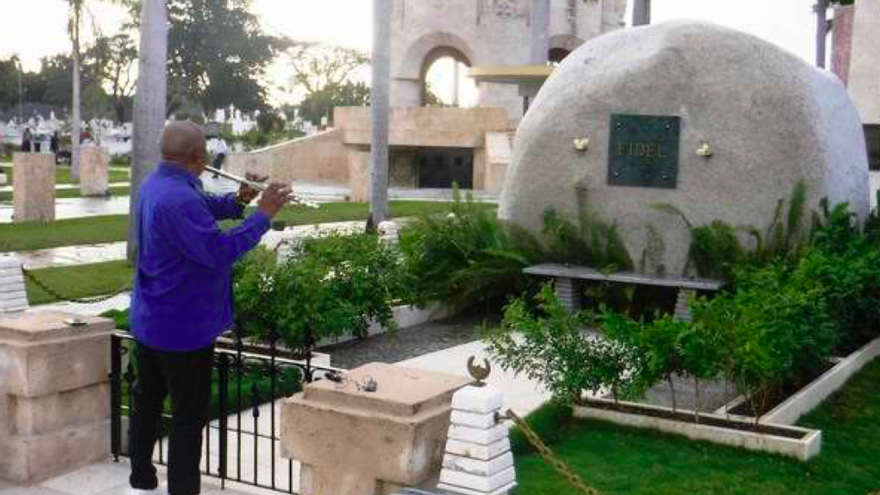
![]() 14ymedio, Yunior García Aguilera, Madrid, 7 February 2024 — No one is stupider than the idiot who thinks he is an intellectual, myself included. When I started becoming politically active, I arrogantly believed that, where others had failed, I would succeed. I thought that the higher the collective IQ a movement had, the better its chances of success. I figured that the more illustrious the names on the list, the more people would be willing to join. I had forgotten that most of our mambises* were illiterate.
14ymedio, Yunior García Aguilera, Madrid, 7 February 2024 — No one is stupider than the idiot who thinks he is an intellectual, myself included. When I started becoming politically active, I arrogantly believed that, where others had failed, I would succeed. I thought that the higher the collective IQ a movement had, the better its chances of success. I figured that the more illustrious the names on the list, the more people would be willing to join. I had forgotten that most of our mambises* were illiterate.
For the last two years, the resistance and the fight for change in Cuba have been led primarily by the poorest, least enlightened people, not by some egghead. The most significant aftershocks of the mass demonstrations on 11 July 2021 have occurred in marginalized areas, far from provincial capitals. The very few scholars who have displayed a courageous, dignified attitude have had to deal with a very harsh isolation, beyond the metaverse.
On the other hand, the dictatorship knows it can rely on the support of tens of thousands of ambidextrous artists and intellectuals who, yes, do offer some criticism from time to time, following the mantra “a little positive, a little negative.” But they still sign loyalty oaths, attend marches and official events, and remain active in the National Writers and Artists Union (UNEAC) or the Hermanos Saíz Association (AHS), organizations which exist expressly and openly to monitor and control their members, not to promote their work in any way.
Why do exceptional cases, like members of the Filmmakers Assembly, run around in circles, ruminating on the same statements and making the same speeches?
So what’s going on? Why have Cuba’s cultural and academic unions not known how, not been able, or not wanted to effectively articulate ways to bring about change? Why do exceptional cases, like members of the Filmmakers Assembly, run around in circles — ruminating on the same statements and making the same speeches — like cattle heading inexorably to the slaughterhouse, never leaving the corral?
By the time Fidel Castro issued his ultimatum**, “Words to the Intellectuals,” State Security had already meticulously planned how to keep us subjugated. They would employ our own egos against us, our very enlightened banalities, our jealousies and envies, our desire to be in the spotlight, our ambiguities, our contradictory herd mentality. Their tactics and strategies ranged from flattery — designating sacred cows and golden calves — to public sacrifices which would serve as a lesson. We normalize the use of masks and the misuse of allegories.
It is so sad and so naive when an artist boasts of having defended himself against his inquisitors by saying, “That is not what my work says. You are just interpreting it that way.” It is so very painful to have to hide behind an alter-ego to say what we dare not say aloud to ourselves.
It is so very painful to have to hide behind an alter-ego to say what we dare not to shout ourselves
When a state-supported intellectual asks to speak at a meeting, he first asks himself if it will be the right time and place to say what he thinks. He then starts his speech by clarifying that he (or she) is indeed a true revolutionary and that his criticisms are, of course, from within. In common parlance, this is referred to as putting on a patch before there is a hole. When the person in question finally finds the courage, he launches into a stern criticism of himself. Never against the disease, only against the symptoms.
Those with experience in this type of public venting know all too well that the the big shots really enjoy attacks like this, which are directed at low-ranking officials. It is the perfect opportunity to display power, demagoguery and populism. They will make a fool of the little guy even if his misstep is the result of an order from above or something endemic to the system.
This sacrifice — the fall from grace, the exile of one’s contemporaries — benefits the mediocre intellectual. It presents an opportunity to attain what had previously been out of reach. That is why almost all the country’s top prizes and awards ignore Cubans living overseas. Their colleagues on the island do not want the competition. They should have eliminated the National Prizes’ absurd categories long ago but the topic is never even mentioned at their conferences.
The Spanish word necedad, a term the regime’s defenders use to explain their actions, can mean stubbornness or obstinancy. But if you look it up in a dictionary, the first synonyms you find are simply stupidity, imbecility, idiocy and nonsense.
José Martí and Reinaldo Arenas would be disgusted by all these supposed intellectuals who believe themselves to be superior for knowing how to disguise their cowardice as intelligence.
Translator’s notes:
*Afro-Cuban insurgents who fought for Cuba’s independence from Spain in the 19th century.
**”Within the Revolution everything, outside the Revolution nothing.”
__________________
COLLABORATE WITH OUR WORK: The 14ymedio team is committed to practicing serious journalism that reflects Cuba’s reality in all its depth. Thank you for joining us on this long journey. We invite you to continue supporting us by becoming a member of 14ymedio now. Together we can continue transforming journalism in Cuba.
